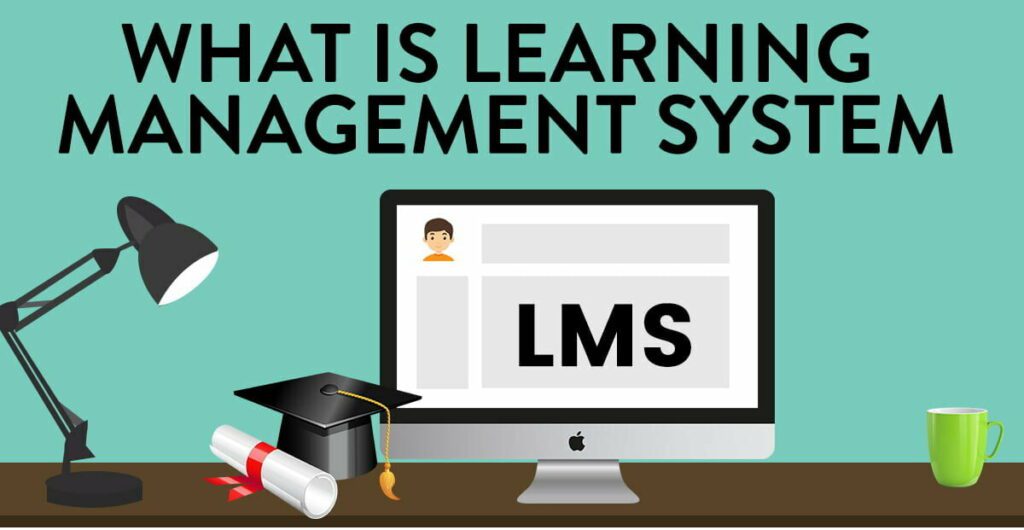LMS Singapore: A Step-by-Step Overview to Picking the Perfect Learning Management System
Picking the most effective Discovering Monitoring System for Your Company
Choosing the ideal Knowing Monitoring System (LMS) for your organization is a complex decision that calls for careful factor to consider of various components. From defining exact knowing objectives that resonate with your critical vision to evaluating customer experience, each element plays a pivotal function in the total efficiency of the system. Additionally, comprehending integration abilities and making sure scalability for future needs can not be ignored. As companies pursue performance and growth, the selection of an LMS ends up being increasingly significant. What are the important factors to consider that can affect your decision-making process?
Specify Your Discovering Purposes
Defining clear knowing goals is essential for the successful execution of a Learning Management System (LMS) These purposes function as a roadmap, assisting the advancement of content, analyses, and total educational strategies within the LMS. By establishing specific, measurable, attainable, appropriate, and time-bound (SMART) objectives, organizations can guarantee that the discovering experiences are straightened with their strategic purposes and learner demands.
Efficient knowing purposes must encapsulate what learners are anticipated to recognize or have the ability to do upon completion of a training course or training program. This quality not just aids in material creation however additionally assists in the analysis of learner progression and the general performance of the LMS. Canvas Singapore. Distinct objectives enable stakeholders to analyze whether the selected LMS performances and functions line up with their educational objectives.
Assess User Experience
Once finding out objectives have been developed, examining customer experience comes to be a vital next step in choosing a suitable Discovering Monitoring System (LMS) Individual experience incorporates the general contentment and convenience with which students connect with the system. A well-designed LMS needs to facilitate instinctive navigating, ensuring that individuals can locate courses, materials, and support easily.
To evaluate user experience, consider performing functionality testing with a representative sample of end-users. Secret elements to evaluate consist of the LMS's user interface design, availability functions, mobile compatibility, and the clarity of instructions given.
Additionally, examine the accessibility of assistance resources, such as tutorials and help centers, which can boost the user experience. The responsiveness of consumer support is additionally vital; timely help can significantly mitigate disappointments that users may experience. Eventually, picking an LMS that prioritizes user experience not just improves the learning process but also fosters higher interaction and complete satisfaction among students.

Evaluate Combination Abilities
Recognizing the significance of smooth performance, reviewing integration abilities is vital when picking an Understanding Management System (LMS) An effective LMS should assist in interoperability with existing systems, such as Human Source Management Systems (HRMS), Client Relationship Monitoring (CRM) systems, and other instructional devices. This integration boosts information circulation, reduces administrative burdens, and makes sure a natural understanding environment.
When evaluating an LMS, take into consideration the kinds of integrations provided. Seek Application Programming User Interfaces (APIs), Solitary Sign-On (SSO) capabilities, and pre-built connectors that improve integration processes. In addition, verify the LMS's capacity to incorporate with third-party devices, such as material libraries or assessment systems, which can significantly enrich the learning experience.

Think About Scalability and Adaptability
As companies develop, the ability of a Learning Management System (LMS) to range and adapt ends up being progressively vital. A scalable LMS can suit growth in individual numbers, course offerings, and content without compromising performance or user experience. As services increase, whether through raised employees, brand-new places, or diversified training demands, the LMS needs to flawlessly expand along with these adjustments.
Adaptability is just as vital; an efficient LMS must sustain different learning modalities, such as online, combined, and mobile knowing. This adaptability permits organizations to react swiftly to emerging fads in training and growth, making sure that they can provide appropriate and appealing discovering experiences - Singapore LMS. In addition, the system must offer adjustable features, allowing companies to customize the LMS to their details needs and branding
Furthermore, a flexible LMS must incorporate easily with existing tools and platforms, promoting a natural discovering community. Therefore, when picking an LMS, it is crucial to analyze not just its present capabilities but additionally its prospective to grow and adjust in alignment with the weblink organization's strategic objectives and progressing discovering demands. This foresight can significantly enhance the lasting stability of the selected LMS.
Review Expenses and Budgeting
When examining a Learning Monitoring System (LMS), examining expenses and budgeting is important to make sure that the investment aligns with the company's critical objectives and financial capabilities. Organizations must begin by recognizing the total cost of possession, that includes licensing costs, application expenses, upkeep, and any added expenses such as training and technical assistance.
It is crucial to compare numerous LMS choices, as prices versions can differ significantly amongst suppliers. Some systems might use a subscription-based design, while others might bill an one-time charge. Organizations should likewise think about the scalability of the LMS; as they grow, the price framework might transform, affecting long-term budgeting.

Verdict
Selecting an ideal Discovering Monitoring System (LMS) is essential for achieving business discovering goals. Eventually, the best LMS serves as a pivotal device in cultivating a reliable discovering atmosphere and driving organizational success (LMS SG).
Selecting the ideal Discovering Monitoring System (LMS) for your company is a complex choice that needs careful factor to consider of different elements.Specifying clear knowing objectives is crucial for the effective implementation of a Learning Administration System (LMS)Once learning purposes have been developed, examining user experience comes to be a crucial next action in choosing this content a suitable Learning Monitoring System (LMS)As companies progress, the ability of a Learning Monitoring System (LMS) to range and adapt becomes increasingly vital.Choosing a suitable Learning Monitoring System (LMS) is necessary for attaining organizational learning purposes.